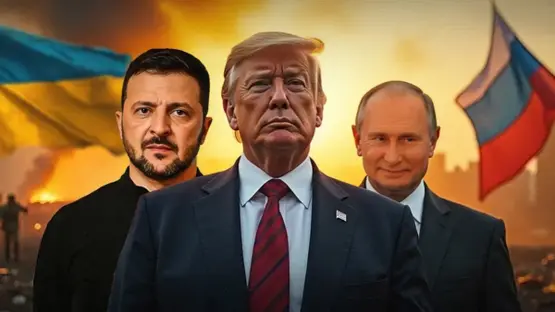The Kremlin has sought to temper growing speculation over the prospect of direct peace talks between Russian President Vladimir Putin and his Ukrainian counterpart Volodymyr Zelensky, even as U.S. President Donald Trump renewed his push for a bilateral meeting.
Trump met Putin in Alaska last week and hosted Zelensky alongside seven European leaders at the White House on Monday. Speaking on Tuesday, Trump admitted the war in Ukraine was “a tough one” to solve, acknowledging that Putin may not be interested in ending hostilities. “We’re going to find out about President Putin in the next couple of weeks. It’s possible that he doesn’t want to make a deal,” Trump said, adding that the Russian leader would face a “rough situation” if that were the case.
The U.S. president suggested it would be “better” if Putin and Zelensky met without him, though he said he was ready to attend a summit “if necessary.” Trump has previously claimed he could secure a ceasefire with Moscow, but those assurances have so far failed to materialize.
While Putin reportedly told Trump he was “open” to the idea of direct talks, Russian Foreign Minister Sergei Lavrov quickly cautioned that any meeting would require a lengthy preparation process, beginning with technical discussions at the expert level. Dmitry Polyanskiy, Russia’s deputy representative to the UN, echoed that stance, saying Moscow was not opposed to dialogue but warning against “a meeting for the sake of a meeting.”
Reports emerged on Tuesday that Putin had even suggested Zelensky travel to Moscow for talks, a proposal Kyiv was highly unlikely to accept. Analysts view the suggestion as a tactical move designed to underline the gulf between Russian and Ukrainian positions.
Meanwhile, NATO’s military chiefs are set to hold a virtual meeting on Wednesday, while UK military chief Admiral Tony Radakin travels to Washington for consultations on reinforcing Ukraine’s defenses.
For Trump, the flurry of meetings has underscored the complexities of the conflict. He has now shifted focus from a short-term ceasefire to urging both sides to explore a permanent peace deal. Ukrainian and European leaders are understood to have convinced him that any settlement must include firm security guarantees for Kyiv’s sovereignty.

